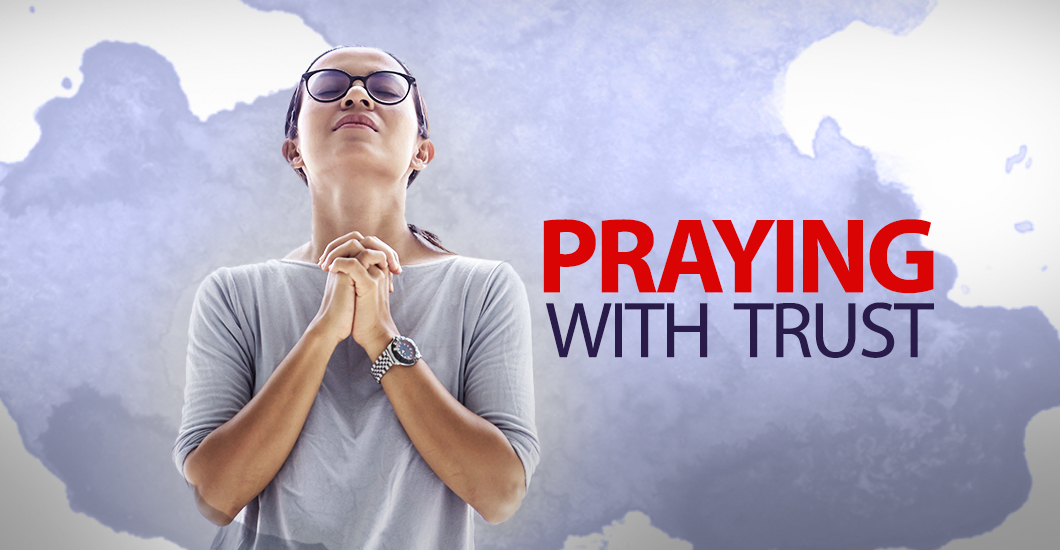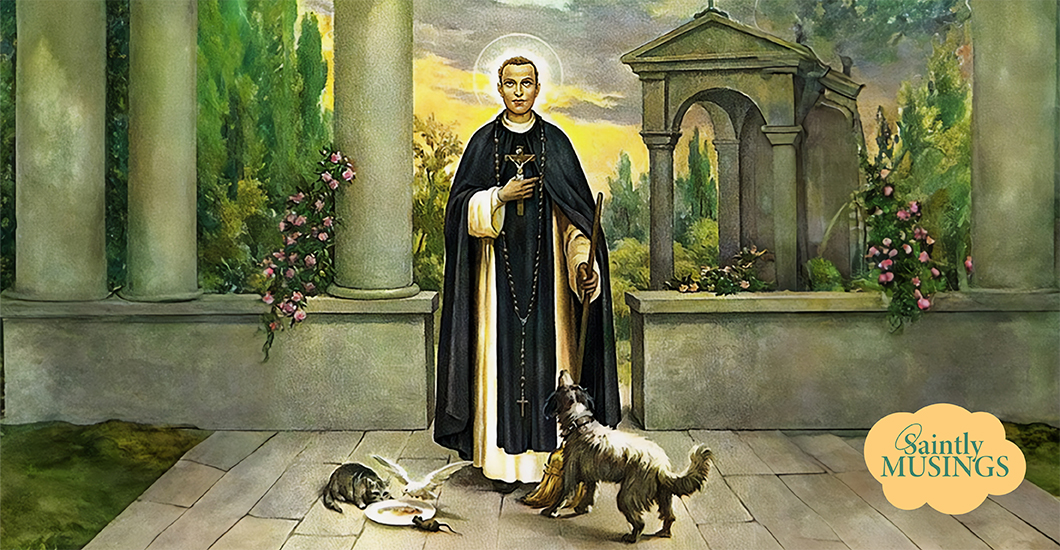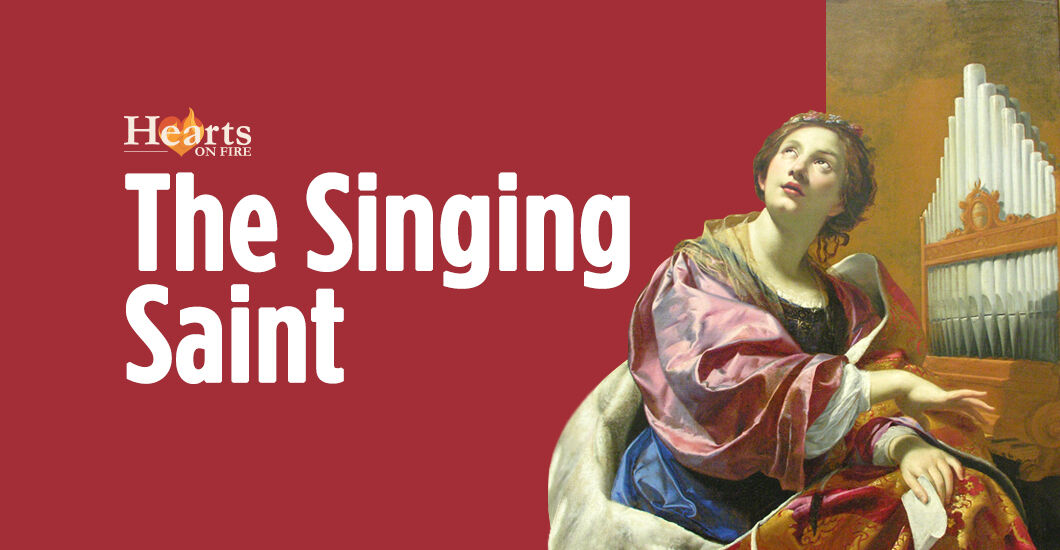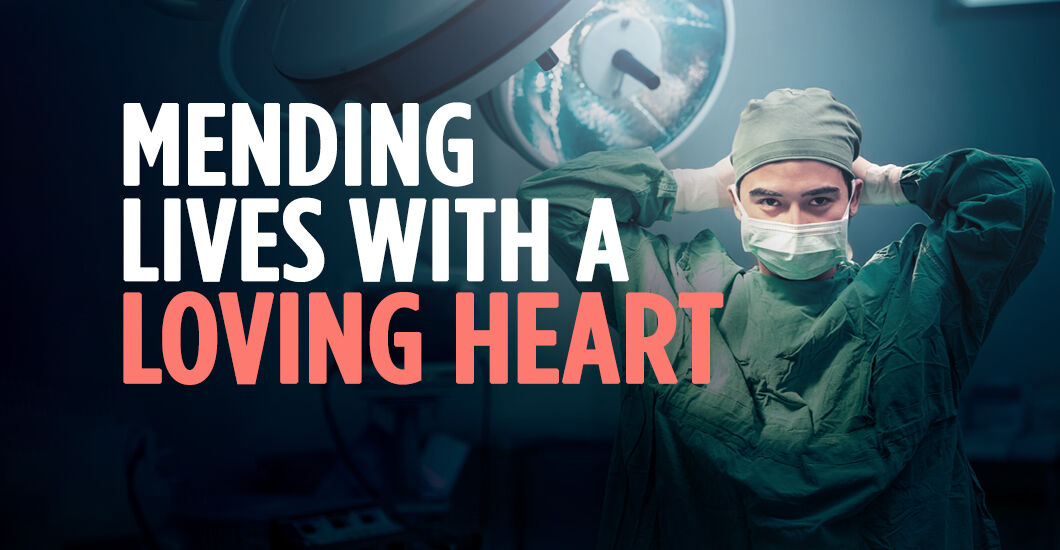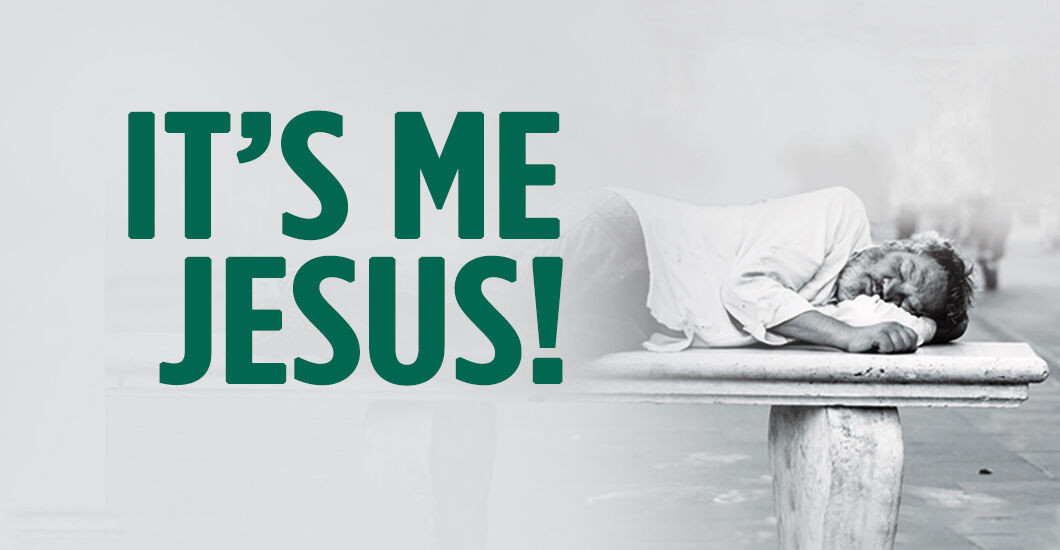Home/Evangelize/Article
Trending Articles
Praying with Trust
I have a great prayer intention. Before I offer it up, I check out every angle as if I am purchasing a used car. The tires are sound, because this prayer is absolutely not about me. In fact, it is the most selfless prayer I have ever uttered. It will get great mileage. If answered, this prayer will bring many people happiness, joy, relief, conversion. What is not to love about this intention?
There is a catch. I have forgotten to look under the hood and ask, “But is it God’s will?” There are atheists and anti-Christians who would leap on that question. Aha! If it is a great intention and God does not answer it, it must be because He does not exist. At the very least, He is a mean God, one who would allow children to get cancer.
Since God is love, it would be impossible for Him to be mean, and I have seen proof of His existence in my life. Still, why would God find fault with such a great prayer intention? The answer is because He wants the greater good, or the good of us all.
While I am looking at an isolated need— isolated by the fact that I am human and can only see a very small portion of the big picture—God IS the big picture. He sees not only my limited world-view but the intricate way everything I am looking at touches situations I am not aware of and people’s lives I would not even know to consider.
There was an obvious example in the news, a situation where a good man was under attack by ideologists. It was a crazy situation and one that seems unbelievable in more ways than one. The obvious prayer is for protection for this man, that God help him prevail over his attackers.
What if, through that man’s suffering, God can bring about the conversion of his attackers? Since God cares about every soul, I can see which would be His priority, can you? It is possible that one of those converted souls may become a modern Saint Paul, bringing many people to Jesus.
If you think that means we should not pray or be specific with our prayers, that is not where I am headed. Instead, my example is a call to Trust. I should pray for the man, but at the same time, I should leave it in God’s hands, because God sees the big picture. I offer my prayers with the caveat that His will be done, and I do this with complete trust that He will bring about the greatest good. Usually, it is something far greater than I have asked for.
If you begin to pray in trust your entire life will change. When challenges come, you will be confident that there is a good that will come out of each situation, even if you do not get to see it. You will stress less, and you might even become excited to see how God is answering your prayers in amazing ways that you had not anticipated.
The point is, we do not know God’s will. It is bigger than anything we could imagine. Sometimes our prayer requests fall in line with that will, but sometimes they do not.
If you learn to trust His will and let go of controlling the outcome, then you will discover that every prayer is answered and every answered prayer is for His glory.
Jacqueline Vick is a devout Catholic, wife to a wonderful guy, pet parent to a troubled mutt and mystery writer. To know more about her visit www.jacquelinevick.com
Related Articles
Something made me stand still that day…and everything changed. I was about to start my rosary group at the nursing home where I work as a pastoral care practitioner when I noticed 93-year-old Norman sitting in the chapel alone, looking forlorn. His Parkinson's tremors seemed quite pronounced. I joined him and asked how he was doing. With a defeated shrug of his shoulders, he muttered something in Italian and became quite tearful. I knew that he was not in a good place. The body language was very familiar to me. I had seen it in my dad a few months before he died—the frustration, sadness, loneliness, angst of ‘why do I have to continue living like this,’ physical pain evident from the furrowed head and glassy eyes… I became emotional and could not speak for a few moments. In silence, I put my hand on his shoulders, assuring him that I was there with him. A Whole New World It was morning tea time. I knew that by the time he manages to shuffle to the dining room, he would miss the tea service. So, I offered to make him a cuppa. In my minimal Italian, I was able to discern his preferences. At the nearby staff kitchen, I made him a cup of tea, with milk and sugar. I cautioned him that it was quite hot. He smiled, indicating that’s how he liked it. I stirred the drink many times as I did not want him to get scalded, and when we both felt it was the right temperature, I offered it to him. Because of his Parkinson’s, he could not hold the cup steady. I assured him that I would hold the cup; with mine and his trembling hand, he sipped the tea, smiling so delightfully as if it was the best drink he ever had in his lifetime. He finished every single drop! His shaking soon stopped, and he sat up, more alert. With his distinguished smile, he exclaimed: “Gracias!” He even joined the other residents who soon ambled to the chapel, and he stayed on for the Rosary. It was only a cup of tea, yet it meant the whole world to him—not only to quench a physical thirst but also an emotional hunger! Reminiscent While helping him drink his cuppa, I remembered my dad. The times he enjoyed the meals we had together without rushing, sitting with him at his favorite spot on the sofa as he struggled with his cancer pains, joining him in his bed listening to his favorite music, watching healing Masses together online… What drew me to meet Norman at his need that morning? Surely it was not my weak and carnal nature. My plan was to set up the chapel quickly as I was running late. I had a task to accomplish. What made me stand still? It was Jesus, who enthroned His grace and mercy in my heart to respond to the needs of someone. At that moment, I realized the profoundness of Saint Paul’s teaching: “It is no longer I who live, but it is Christ who lives in me.” (Galatians 2:20) I wonder when I reach Norman’s age and I long for a cappuccino, ‘with almond milk, half strength, extra hot,’ will someone make one for me with such mercy and grace too?
By: Dina Mananquil Delfino
MoreWhatever the situation you are going through, God will make a way where there seems to be no way… Today, my son Aaric brought home his dictation book. He got a red star with a ‘good’ remark. This might not be a big deal for a kindergartener, but for us, it is a celebrated achievement. The first week of school, I got a call from his class teacher. We dreaded this call, my husband and I. As I tried hard to explain his communication skills (or lack thereof) to his teacher, I remember confessing that while I cared for his big sister with special needs, I had fallen into this pattern of doing things without being asked. As she could not utter a single word, I had to guess her needs. The same mode was turned on for Aaric, too, in his early days. Even before he asked for water, I would give it to him. We had a bond that didn’t need words, a language of love, or so I thought. How miserably wrong I was! Not much later, when his little brother Abram turned three months old, I had to take those heavy steps again to see the counselor at school. This time, it was about Aaric’s poor writing skills. His dear class teacher panicked when she saw him drop his pencil on the table and stubbornly fold his hands as if to say: “I won’t write.” We dreaded this, too. His little sister Aksha was an expert at scribbling at the age of two, but Aaric wouldn’t even hold the pencil. He just didn’t fancy it. The First Step After receiving instructions from the counselor, I visited the principal, who insisted that we undergo a thorough assessment if his communication continues to be weak. I couldn’t even think of that back then. For us, he was a miracle baby. After what we went through with our firstborn and three miscarriages, Aaric had defied all odds. He was born full-term, unlike what the doctors had predicted. His vitals were normal at birth. “He’s a big baby!” exclaimed the doctor on bringing him out through a C-section. We watched him grow step by step with almost bated breath, praying nothing would go wrong. Aaric soon reached all his milestones. However, when he was just one year old, my father mentioned that he may need speech therapy. I brushed it off as being too early to diagnose. The truth was, I didn’t have the strength to face another problem. We were already worn out with all that our firstborn was going through. Anna was born preterm at 27 weeks. After many grueling days in the NICU, she was diagnosed with severe brain damage at three months and had epileptic seizures. After all the treatments and medications, our now 9-year-old daughter still battles with cerebral palsy and intellectual disability. She is unable to sit up, walk, or talk. Countless Blessings There’s a limit to holding off the inevitable, so six months ago, we reluctantly took Aaric to get an initial assessment. The ADHD diagnosis was hard. We struggled to accept it, but we still put him through speech therapy. At this point, he was only stuttering a few words. A few days back, I mustered the courage to go to the hospital with Aaric and get a full, thorough assessment. Mild autism was what they said. As we were going through the process of assessment, several questions were asked. To my surprise, my response to most of these questions was: “He wasn’t able to, but now he can.” Praise God! By the power of the Holy Spirit living in him, everything is possible. I believe that praying and blessing him every day before going to school has made a difference. The change was radical when he began to memorize Bible verses. And the beauty is that he recites those verses just when I need them. Indeed, the Word of God is living and active. I believe the transformation is ongoing. Whenever I feel low, God surprises me by making him say a new word. Amid the tantrums he puts up, and when everything seems to crumble down, my little girl, three-year-old Aksha, simply comes up and gives me a hug and a kiss. She really knows how to comfort her mama. I believe that God will surely intervene and heal our eldest daughter, Anna, too, for nothing is impossible for Him. Change is already visible—the number of times she goes into epileptic seizures has gone down tremendously. In our walk of life, things may not be going as expected, but God never leaves nor forsakes us. Just like oxygen that is essential yet invisible, God is ever present and provides the life we need so badly. Let us cling to Him and not doubt whilst in the darkness. May our testimony reveal the truth of how beautiful, wonderful, and loving our God is and how He transforms us to say: “I was …, but now I am ….”
By: Reshma Thomas
MoreMartin de Porres was born in 16th-century Peru; he grew up facing the stigmas of both his mixed race and illegitimacy. After a barber-medical apprenticeship in his young years, he joined the Dominicans as a ‘lay helper’ and continued his barber work in the monastery. One day, Brother Francis Velasco Carabantes approached Martin, desiring to talk to this man whom people were already starting to believe was saintly. Martin was busy with his barber work; he absent-mindedly grabbed this novice and placed him in the barber’s chair. Brother Francis had no inclination to have his head shaved; he disliked the hairstyle that the Dominicans used. Before he could resist, Martin had finished his job, and Brother Francis was angry beyond expression. He started to shout, calling Martin all sorts of curse words. Martin was lost in prayer, and by the time he noticed that this novice was shouting, one of the rectors had seen the commotion and was scolding Brother Francis, who was severely punished and sent away. Martin, once he came to realize what had happened, went to the rector with all possible excuses. He begged forgiveness for this person who had verbally abused him, trying even to explain away the curse words used. Finally, he told the rector: “Everyone knows what a sinner I am.” The rector, who was aware of Martin’s saintly life, gave in to his request and forgave Brother Francis. Not satisfied with this, Brother Martin even sent fresh fruit, which was a rare delicacy in the monastery, to Brother Francis. How many times have we rejoiced in the ‘just’ punishments that our transgressors received? Let us pray to Saint Martin for the virtue of humility, to forgive and show the other cheek, as Jesus taught us to do.
By: Shalom Tidings
MoreHow often do we muse over not getting enough time to do the things we like? This New Year, let’s make a difference. I have never really been one to make New Year’s resolutions. I am reminded of this as I look at the stack of unread books gathering dust on my desk, purchased in the previous years in an ambitious yet miserably failed attempt. A book a month turned into a stack of unread intentions. I had a million reasons as to why I wasn’t successful in my resolution, but lack of time wasn’t one of them. Looking back now on the years lost with a slight disappointment in myself, I realize I really could have made better use of my time. How often in my life have I complained about not having enough time to do the things I’d like? Certainly more than I can count! A few years ago, sitting next to my husband in the hospital on New Year’s Eve as he received his routine treatment, something tugged at my heart. Observing him uncomfortably connected to his intravenous infusion, I noticed that his eyes were closed and his hands were folded in prayer. Apparently feeling my quizzical stare, he slightly opened one eye and, while peeking at me, quietly whispered: “Everyone.” Somehow, he read my mind. We often pray for those around us whom we perceive as hurting or in need of prayers, but today, we were sitting alone, and I was puzzled as to who he may have been praying for. It was moving and inspiring to think that he was praying for “everyone” and not just those who we assume could use prayers because of their outward appearances. Everyone—every one of us needs prayers. We are all in need of God’s grace and mercy regardless of the image we project to the world. This seems true, especially now when so many people are silently suffering from loneliness, financial trouble, and even mental health struggles that are often hidden away. No one truly knows what another person is going through, has gone through, or will go through. How powerful would it be if we all prayed for each other? How life-changing, world-changing, it could be. So this New Year, I am resolving to use my spare time more wisely and thoughtfully—prayerfully considering the sufferings and needs of others, those others that I know, those that I don’t know, those who have come before me, and those who will come long after. I am going to pray for all of humanity, trusting that our dear God, in His abundant mercy and immeasurable love, will bless us all.
By: Mary Therese Emmons
MoreGod sends no one away empty-handed—except those who are full of themselves I once heard a Taekwondo master tactfully correct a young teenage boy who was looking to be his martial arts student: “If you would like to learn martial arts from me,” he said, “you need to pour out the tea in your cup first, and then bring back the empty cup.” To me the master’s meaning was clear and concise: He didn’t want a prideful student. A cup full of tea has no space for more; no matter how good what you try to add is, it will overflow the cup. Likewise, no student can learn from even the best of masters if he is already full of himself. As my eyes followed the young man walking away in indignation, I told myself that I would never fall into that prideful trap. Yet a few years later, I found myself bringing a cup brimming with bitter tea to God—my Master. Full to the Brim I was assigned to teach religion to PreK to second grade students at a small Catholic school in Texas. I received that assignment from my religious superior with bitterness and discouragement. For me, the reason was quite understandable: I had completed my Master of Theology degree, because I wanted to become a college professor in Sacred Scripture, and later, a sought-after public speaker. This assignment clearly did not meet my expectations and required so much less of me than what I thought I could give. In tears I fell prostrate onto the convent’s chapel floor and lay there for a long time. How can I bring myself to teach a bunch of little children? How can I benefit from working among kids? Indeed, my teacup was full to the brim. But even in my pride, I could not bear to walk away from my Master. The only way out was to beg Him for help. The Master saw me through and through and was ready to help me drain my teacup so he could fill it with more tasteful tea. Ironically, he chose to use the very children put in my charge to teach me humility and empty my cup of pride. To my surprise, I began to realize that the children were budding, little theologians. Regularly, their questions and remarks gave me greater understanding and insights into the nature of God. A question from four-year-old Andrew brought a surprising result: “How can God be inside of me?” he asked. While I was organizing my thoughts and preparing a sophisticated theological answer, little Lucy replied without a moment’s hesitation, “God is like air. He is everywhere.” Then she took a deep breath to show how like air God could be inside her. Trained by True Master God not only used the children to help me empty my cup, but also to teach me ‘martial arts’ for my spiritual battles. While watching a short video about the story of the Pharisee and the tax collector, little Matthew broke down in tears. When I asked, he humbly admitted, “I bragged the other day that I had shared my ice cream with my friend.” His words reminded me to remain on guard against the sin of pride. By the end of the year, I had learned that as I emptied my teacup, God was filling it with Himself instead. Even the children told me so. One day, Austin sneakily asked, “Sister, what is the Bible?” Not waiting for an answer, he pointed at me: “You are the Bible,” he said. I was a bit shocked and confused but little Nicole supplied the explanation, “Because you are all about God,” she said. It was through the children that God poured new tea into my cup. Many of us go to God asking Him to teach us how to fight our spiritual battles without realizing our cup is too full of pride to have room for His teaching. I have learned that it is easier to bring an empty cup and ask our master to fill it with His own life and wisdom. Let’s allow the true master to train us and give us exercises for our life journey and for the battles we will inevitably fight. He may surprise us and use little children, or others we think little of, to teach us, but let us remember that “God chose the lowly and despised of the world, those who count for nothing, to reduce to nothing those who are something, so that no human being might boast before God” (1 Corinthians 1:28-29).
By: Sister Theresa Joseph Nguyen, O.P.
MoreThe Christian writer Tertullian wrote that “the blood of the martyrs is the seed of the Church.” A sterling example of that truth is the third century martyr, Cecilia. Her name is recited daily in the canon of the Mass, and she remains to this day as one of the great Saints of the early Christian era. Hers is an inspiring yet bloody story. Despite having vowed her chastity to Jesus, her wealthy parents arranged a marriage with a young suitor named Valerian. You can imagine the young man’s surprise when, on her wedding night, Cecilia informed him that she had not only taken a vow of chastity but that her virginity was under the watchful protection of her guardian angel. Amazingly, her husband agreed to respect her vow and even promised to embrace Christianity, but he had a condition: he wanted to see her guardian angel. Her counter-request was that he travel to the third milestone on the Appian Way and there receive baptism at the hands of Pope Urbanus. After emerging from the waters of baptism and returning home, Valerian did indeed see the angel sitting beside Cecilia. Eventually, her husband’s brother Tiberius was also converted,and the brothers regularly buried Christians who were murdered almost daily by the local Roman prefect. Eventually they were arrested and imprisoned for refusing to offer sacrifices to the gods, but they managed to convert their jailer before losing their lives in martyrdom. Not long after, Cecilia herself was arrested and condemned to death. She miraculously survived a night amidst intense fire meant to suffocate her. Then an executioner struck three separate blows to her neck in a failed attempt to decapitate her. Left bleeding, Cecilia survived three days, preaching all the while to those who gathered round her and who collected the blood that flowed from her wounds. Her relics, and those of her husband, brother-in-law, and the converted jailor, are kept in Rome’s Church of St. Cecilia. Her body was found incorrupt when it was exhumed in 1599 and because on her wedding day she sang hymns to Jesus in her heart, Cecilia is the patron saint of musicians. We celebrate her feast on November 22.
By: Shalom Tidings
MoreAs the weeks rolled by with my husband working from home, putting us together 24 hours a day, I found myself once again feeling like a volcano about to erupt...Little did I know then how quarantine would change my life… It was the spring of 2020 and Covid-19 had spread throughout the country and much of the world. It was a time when quarantine changed my life. We were adapting to new phrases like “social distancing,” and “sheltering in place.” And connecting to others was limited to the use of technology. Thus, a friend of mine encouraged me and some other friends to join her for an online Bible study, pandemic-style. After watching sections of a video and reading portions of the book that accompanied it, we’d text our thoughts and comments to one another. In the first chapter of the study I came across the word “forbearance.” Despite having been a student of Scripture for years, I realized this term was not a part of my lexicon! It was not unfamiliar to me, as I’d come across it throughout the Bible, but the word forbearance seemed better suited to another time in history. The author described this virtue as the ability to hold back one’s power, even if one has the authority to use it, for the greater good that may not be evident to the one seeking relief. She offered a metaphor to explain: imagine God having two arms, both powerful. While stretching out His right arm to exert power, He at times uses his left arm to pull the other hand back, so as to prevent its strength being wielded. I shared this insight on the group text. One participant responded that “He cares enough to allow me to struggle and find deeper understanding and connection to His heart.” I’d seen this very thing in my life over and over through the years. The 40 years I’d worked in healthcare seemed to parallel the 40 years the Israelites wandered in the desert. Grumbling and complaining marked each of our respective journeys yet the Lord continued to provide for my needs and those of the Israelites and taught us obedience which resulted in patience, one of the “fruits of the Spirit.” Over time, patience has become a habit and I rarely express irritation or anger verbally anymore—at least outside the doors of my home! While I had made progress even within my home, I still found it to be the place that triggered my darker angels. Although I was blessed with a good and loving husband, his switch to working from home due to quarantine required an unexpected adjustment to being together 24 hours a day. As the weeks together wore on, I found myself once again feeling like a volcano about to erupt. I tried to suppress it, but when for what seemed like the hundredth time Dan knocked a full glass of tea, ice cubes and all, onto the end table, I exploded and ran to grab towel. When I later apologized, I remembered what my husband told a representative from the Big Sisters organization who had called for a spousal referral to determine my suitability as a volunteer. In response to my curiosity about the content of their lengthy conversation he replied, “I said lots of nice things about you. They did ask me if I thought you were a patient person. I told them you are very patient...with everyone but me!” As we chuckled together, both recognizing the truth in his statement, I realized that in the area of patience, God isn’t finished with me yet. Since retiring, I had adopted a routine of walking in the neighborhood each morning. The exercise kept my thoughts focused as I poured out my heart to the Lord each day. I confessed my impatience, asked forgiveness, listed my husband’s good qualities, and thanked God for him. What I couldn’t seem to do was exercise forbearance! I obviously wasn’t exhibiting the dictionary’s definition of “patient self-control, restraint and tolerance!” One morning, after another frustrating day of my husband working from home, I laid it all out as I prayed. “Lord, I have tried every way I know how to pray about this. I surrender to Your work in my life; make me a truly patient person with everyone, even my husband. I’ve done what I can; now I ask You to do in me what I cannot do in myself.” As the day ended, I happened to glance at the stack of devotionals on the end table. One of the books maybe sixth or seventh from the top caught my eye. I hadn’t opened it in some time, and didn’t even remember what it was titled. Still, I was drawn to it. It was called, “Biblical Homilies,” by Karl Rahner, a noted German theologian. I opened the volume to where a bookmark lay and laughed at the title on the page: “If You Can Put Up With Him, So Can I.” Fr. Rahner cited 1 Peter 3: 8-9: “Finally, all of you be of one mind, sympathetic, loving toward one another, compassionate, humble. Do not return evil for evil, or insult for insult; but, on the contrary, a blessing, because to this you were called, that you might inherit a blessing.” I read the sermon that followed: “This harmony and concord, then, is interpreted to mean that we must be united in prayer. No doubt the letter of St. Peter refers to a general disposition to get on with people.” This idea is obvious enough. We know only too well what a trial we are to each other.” (I paused...how did Fr. Rahner know what was going on in my house?!) “We are so different from one another: we have had different experiences, we are of different temperaments, of different origins, we come from different families, we have different talents and different jobs to do—small wonder if it is difficult for us all to be of one mind. We have different views and we understand each other imperfectly. And being so very different from other people we well may grate on them, unconsciously weary them with what we are, what we think, what we do, what we feel. Mutual harmony and comprehension, being of one mind, is difficult for us. Now we can only live together and bear with each other, bear one another’s burdens, if we do our best to be of one mind, if we are self-effacing and self-possessed, if we can hold our tongue even when we are right,” (now I was sure this priest had been peering at me through the window these last weeks!) “if we can let the other man be himself and give him his due, if we refrain from rash judgment and are patient.” (There was that word again!) “Then it becomes possible, at least in a rough and ready way, to be of one mind. We may not achieve empathy together, but we can be of one mind in Christian forbearance,” (FORBEARANCE!!! The word I never examined or considered until a week or so ago!) “each bearing the other’s burden. This means that I bear the burden the other man is to me simply by being himself, because I know I am a burden to him simply by being myself.” I already knew I couldn’t change anyone but myself, and that didn't seem to be going so well either! Seeing it spelled out so clearly, as given, brought the pieces together. Dan always worked hard to show me he loved me, despite my frailty. He lived the law of love for me. I looked online to find references to “forbearance” in scripture. Turns out, there were different translations of the word, based on the culture and time when each was compiled—Long-suffering, patience that endures, great-heartedness, even “developing a willingness to stick with things”. My response toward Dan felt like “long-suffering,” while his toward me looked much more like “great-heartedness.” We had found very different ways to incarnate the same virtue. I remembered the definition of forbearance I’d heard in the bible-study video: the ability to hold back one’s power, even if one has the authority to use it, for the greater good that may not be evident to the one seeking relief. It was the same lesson I’d learned through years of practicing physical therapy—calm responses made greater difference over time. Without taking time to comprehend what was driving a patient’s resistance to treatment, there would be no progress. Once they knew I understood them, my patients’ transformation would begin. Their progress was well worth my extra effort. I saw now that God was asking me to hold back my power--whether my tongue or my thoughts--for the greater good of our marriage. I had been “seeking relief;” but couldn’t see how it would come. With this realization, quarantine changed my life—by bearing the burden of the one to whom I had promised to be true, in good times and in bad, to love and honor all the days of my life, just as he did for me. How would I practice forbearance? Glancing at a picture of my husband, I knew: the example was right before my eyes.
By: Karen Eberts
MoreWith over 40 years of experience he had accomplished great feats; but interestingly he found true joy elsewhere When I was 11 years old, a bad leg injury from a motor vehicle accident led me to choose my career. After multiple reconstructive procedures I began to say, "When I grow up I'm going to be a plastic surgeon.” I feel blessed that I was able to fulfill my dream of mending lives. When I tell people that I’m a plastic surgeon many are curious about my cosmetic surgeries, but they rarely ask about the reconstructive procedures I perform. The chief difference between the two kinds of surgeries is that most cosmetic surgery is a “want" while reconstructive surgery is a “need". Surgeries in the “need” category are procedures for maxillofacial trauma, skin cancer, burn care, skin grafts and flaps, complex wounds, hand surgery and others. However, in third world countries like Mexico and the Dominican Republic, many patients desperately need and want reconstructive surgery. Sadly, either because they don’t have money or because there is no reconstructive surgeon available, their needs go unmet. To help such patients, I went on medical missions to both countries to volunteer my services with a loving heart. I dealt with two cases there that I would probably never have encountered here in the United States. The first was a woman so poor that she had never owned a pair of shoes. Therefore, the big black mole on the top of her foot was easy pickings (and peckings!) for her chickens. It typically bled, often became infected and always hurt. She begged me, “Por favor Doctor, quiteme este lunar” (Please Doctor, remove this mole). In less than 30 minutes her problem was resolved. A simple but real medical need. She was so appreciative that she hugged me and thanked me profusely. The second patient was a 16-year-old boy with a very wide cleft lip that left his prominent front teeth always exposed. He told me there was a girl in school he really liked but he was too ashamed and embarrassed to ask her to be his girlfriend. In about 2 1/2 hours I was able to change his life. When he was coming out of anesthesia, he looked in a mirror and saw a huge smile with no teeth showing. At his follow up visit, I had to ask, “Que dijo la muchacha?” (” What did the girl say?”) He responded with an emphatic, "Dijo que Si!!!" (“She said yes!”) Like the other seventy or so patients on whom I have operated, these two patients were extremely appreciative. But I also found true joy of my own by mending lives with a loving heart—seeing their smiles, their tears of joy and receiving those warm hugs. My experience frequently reminds me of what Jesus says to His disciples in Matthew 20:28, “the Son of Man came not to be served but to serve". I thank the Lord for blessing me with skills to mending the lives of those most in need.
By: Dr. Victor M. Nava
MoreFear can paralyze us. Fear about family matters. Fear about health. Fear about career. Fear about the future. Many of us carry around such fears. One day I felt so full of fears that I could feel them weighing me down. My jaws felt tight, my throat felt dry, and I could feel my entire body tense up. I felt helpless, as if the challenges that lay ahead of me were an enormous mountain blocking my way forward. “LORD, HELP ME!” I shouted from the depths of my heart. In my distress, I sobbed out all my fears to the Lord. In answer the word, “Remember” resonated through me. I hunted around for a pen and paper to write down the words pouring out of me, one after another: Remember the miraculous way the Lord God Almighty granted you your first job. Remember the time you called out to the Lord for help, and He responded immediately. Remember the beauty of His creation that surrounds you everywhere. The floodgates opened up. Every memory etched gratitude to the Lord deeper into my heart for His never-ending faithfulness and goodness. And I continued to write. Remember how the Lord answered your prayers and granted you virtuous friendships. Remember how He brought the right people into your life when you needed them most. Remember. Remember. Remember the faithfulness of the Lord, Sherin! The more I wrote, the more I recalled His faithfulness and presence in my life. After writing three pages worth of these memories, I paused and reread all that I had written. I realized how quickly I had forgotten His steadfast love for me when I was faced with new challenges. Filled with deep gratitude, I wanted to hold onto these memories of His faithfulness. So, I grabbed my cell phone and took photos of the pages I had filled and I set it as the home screen on my phone. Every time I picked up my phone throughout the day, I was reminded yet again of His faithfulness. Doing so brought a sense of peace and reassurance that no problem is too big for my Lord and my God. This greater trust in the Lord induced a state of calmness and stillness as I went about my daily tasks. The Voice Message Two or three days later, I unexpectedly received a voice message from a good friend who had no idea of my recent prayer experience. He mentioned an old Christmas card that I had written to him six years ago and pointed out a single line I had written in that card. “The Lord Remembers. Daniel 14: 38”. The Lord remembers? What is my friend talking about? I was clueless. I went straight to the source—my Bible, quickly flipping through the pages to Daniel 14:38. “And Daniel said, ‘You have remembered me, O God; and have not forsaken those who love you.” Daniel 14:38 The timing and content of my friend’s message left me speechless. In the depths of my heart, I felt as if the Lord had responded to me through my friend’s voice message. The message was clear. My Lord remembers me too, just as I try my best to remember Him and His faithfulness.
By: Sherin Iype
MoreIt was a cold and snowy afternoon several years ago, when I felt like going to Adoration. My own parish didn’t have Perpetual Adoration yet, so I drove to a parish that did. It has a small, very intimate chapel where I loved spending time with Jesus, pouring my heart out to Him. My hour was almost over when I heard two people talking in the back of the chapel. I was disconcerted and distracted by their insensitivity regarding a homeless man in the narthex, so I decided to leave. My hour was almost over anyway. As I left, I passed through the narthex where the man was sleeping so soundly that he didn’t even stir when I paused to say a prayer over him. I felt relieved that the doors were unlocked for Adoration so he could find shelter. He appeared to be homeless, but I didn’t know for sure. What I do know is that I was moved to tears by my concern for this man. I could hardly contain myself as I wandered outside where a statue of the Sacred Heart reminded me of Christ’s loving concern for every person and His abundant mercy. I begged the Lord to tell me what to do. In my heart, I felt the Lord telling me to go to the nearby store and pick up a few necessities for this man. I thanked Him and immediately bought a few things that I thought the man might be able to use. All the way back to the chapel, I hoped the man would still be there. I really wanted to give him what I had purchased. When I arrived, he was still sleeping. I quietly set the bags down near him, said a prayer, and began walking away. I had almost reached the exit when I heard someone call, “Lady, lady”. I turned around and replied, “Yes”. The man was now awake and approached me, asking if I had left the bags for him. I replied, “Yes, I did.” He thanked me saying how thoughtful that was. No one had ever done that before. I smiled and said, “You’re welcome”. The man was coming closer and I felt as if I was in the presence of Jesus. I felt so much love in my heart. Then he said, “Lady, I will see you in Heaven.” I thought I would burst out crying. His voice was so kind and loving. I was compelled to give him a kiss on the cheek. We said goodbye to each other and went our separate ways. Outside, I couldn’t stop crying. I cried all the way home. Even now, I am moved to tears when I remember that afternoon. That cold, snowy afternoon, I realized that I had indeed met Jesus in that beautiful man. Now, when I look back, I imagine Jesus saying to me, “It’s Me, Jesus!” with a big smile on His face. Thank you, Jesus, for reminding me that I can meet you in each person I encounter.
By: Carol Osburn
MoreLatest Articles
Letting go is not easy…But what happens if you do it? Ever since the age of one, I have been living in a foster home. George and Hazel, our foster parents, took care of almost ten of us. Our foster dad was an aggressive man, and we were all terrified of him. Every problem was addressed through acts of violence; what was even more terrifying was that he would often specifically pick me as his target. I suffer from acute asthma. One night, as I was in bed, coughing and wheezing, struggling to breathe, he came into my room and sat on top of me! He thrashed me so badly that I couldn’t lean on my back or move. Later that night, when everyone fell asleep, my foster parents secretly inspected my back; through the mirror, I not only saw the reflection of my back but also the shock on their faces. The next day, the other boys took a look and said it was blue-black from top to below. Though the people from foster care would come and check on us occasionally, we were too afraid to report on him. Toughest Decision Once his wife passed, his aggression intensified even more. The beatings got worse. One day, he had me in the corner and I was asked to lift my arms to be punched underneath so that there would be no visible bruises. I can't even remember what it was about. I was a fifteen-year-old boy feeling powerless against this grown, strong construction man. He punched me, again and again and again. Then, he looked directly into my eyes and told me something that changed my life forever. I’ll never be able to forget it because it far surpassed the pain of all the beatings he had given me put together. He said that the man who had me should have been castrated. All of a sudden, something sweet got broken inside of me. I remember him clearly asking me to stay there before he went inside. At that moment, I decided to run and never come back. It was snowing that night and I only had one jacket and a pair of shoes. I just ran. Things became horrible when I went to London to meet with my biological mother. We did not really know each other; we ended up arguing so much that I was thrown out of the house. That night, I wandered around as I had nowhere to go. For a split second, I felt like there were two choices before me—to live or call it a day. It was easier to call it a day; I wasn't worried about death. It all happened within a split second, but I told myself: “Yes, I want to live.” For a few nights, I crashed at my friends' places. While bouncing from one place to another, I got in contact with my foster brother Nigel back in Manchester. Over the months spent together, he had become a father figure to me. I started valeting and cleaning cars in his garage; everything was going pretty well. He watched over me and took care of me until one day, while we were at the gym, he suddenly collapsed and died. I was devastated and I fell into the deepest darkest place in my life. Making Amends I had no faith. I didn’t think about God. But one day, I found a video cassette in my letterbox; it was about the story of Jesus. I watched it several times, and I began to realize that there was a presence around me. As time passed, I realized that my relationship with God was growing deeper. The desire to be a Christian grew stronger in me and finally, I got baptized. I remember coming from the Baptism with the biggest smile that I just couldn't take off. As time flew by, I became an intercessor, praying for people who grew up in similar situations. And wonderful things happened. One day, at 5 in the morning, I was praying in my living room. An image of my foster father appeared to me. I had no contact with him, and I wasn’t really bothered about what was happening to him. But there was this strong urge in me that was directing me to see him. I was really nervous about the meeting; the last time I saw him, I was just a boy, and he was beating me. I finally turned up at the hospital. I had envisioned a big strong man, but there on the hospital bed was this frail old man. For a split second, I felt sorry. I asked my foster sister if I could pray for him. So, she woke him up and told him that I was there to pray for him. He said yes and went back to sleep. I pulled out a forgiveness card and put it at the end of the bed. I had some holy water with me and I started reading the last rites. Something strange happened. I prayed in songs and put water on his head. I had never done this before. In my mind, I was saying: “Jesus, do I need to do anything else?” I heard a voice that said: “The abused prays for the abuser and sets him free.” Then it hit me, it must be coming from the Lord…Who else could that come from? When you say: “You abused me, but I choose to forgive you,” the invisible chord that connects you to the abuser is broken at that very moment. It healed me from all the scars that I carried through my teenage years. A lot of that became non-existent and kind of melted away from the moment I forgave him. God used me to save him. It's a miracle in itself. It was phenomenal for me. Shortly after this, I realized there was someone else I needed to forgive–my biological mother–for abandoning me, letting me be abused, and later on, for throwing me out. It felt like I had dropped a whole weight when I forgave her. After that, I began living a godly life. Forgive and Move On God says: “If you forgive somebody in My name, I forgive them too.” He not only allows us to do it, but He will help us to do it. It's extremely hard to be a true Christian. It is very difficult to follow Christ and be Christ-like. It's a very difficult journey but one that is well worth it because when somebody's done something to you, you have the power to set yourself free through forgiveness. From the moment you forgive the person who hurts you, your new life begins. You can look forward to the joy and the beauty that is to come. So, I urge everyone who is holding something against somebody who's done you wrong, to forgive them. Forgiveness is a decision. Forgive. Let God do the rest.
By: Gary Taffe
MoreA man who walked the earth 800 years ago is still remembered for his simplicity… Picture this: A young man from medieval Italy with a life of parties, fashion, and everything a man could have wanted back then. But suddenly, something changes. A pivotal moment, an ‘aha’ moment that takes his life on a whole new path. Meet Saint Francis of Assisi, the ultimate party animal who became a spiritual superstar! He is known for his flowing brown robe and love for nature. He had a way with animals that could make even Doctor Dolittle envious. Birds gathered around him, rabbits hopped at his feet, and even ferocious wolves turned into cuddly companions in his presence. Talk about a real-life superhero! Heroic Life Saint Francis, a hero with a heart of gold! He wasn't the type of superhero to wear capes and shoot lasers; his true superpower was compassion. Francis had a way of finding joy in helping others, especially those less fortunate. He was like a real-life Avenger (but without the violence), fighting poverty and spreading love wherever he went. Instead of a Batmobile, he rocked a humble robe and sandals, zooming around town to lend a helping hand. Whether it was feeding the hungry, comforting the sick, or even talking to animals (yeah, Snow White vibes!), Saint Francis showed us that being a hero isn't about fame or fortune but about using our powers for good. Picture Francis, the peace guru, strutting down the city streets in his Jordans and a t-shirt that says 'Peace, Love, and Avocado Toast.’ Yeah, he's just like us, not literally (that would have looked like madness 800 years ago), navigating the chaos of modern life with a calm and centered vibe. Saint Francis knew that finding inner peace in our fast-paced world is like navigating a crowded subway during rush hour—challenging but possible. He wasn't a mystical guru on a mountaintop; he was a real human who faced our daily struggles. From deadlines to traffic jams, he understood that peace starts within us, even amidst the hustle of everyday life. Saint Francis always sat in silence and prayer, talking to God while all the animals listened. He had a peace that we can only dream of. We must ask Saint Francis to give us this peace; I promise it’s worth it. We can learn many lessons from the life of Saint Francis, some of which are simplicity and humility. He is a man who lived a life of poverty but was still able to care for people experiencing poverty. This concept of poverty is often misunderstood or even dismissed by many young people today. The youth of this generation are sucked into a world of social media, expectations, and possessions, often spending hundreds of dollars on shoes, clothes, and phones just to ‘look cool.’ Take a look at Saint Francis’s life; he was the son of a wealthy businessman, he had lots of money and worldly pleasures, but he gave everything up to follow Jesus. He took a vow of poverty and dedicated his life to Jesus. He might not be new-gen, but there are so many lessons to learn from his life–his simplicity, humility, peace, and inner transformation. We might think that it’s the Jordans and iPhones that matter, but is it really? Saint Francis reminds us to prioritize what truly matters—genuine connections, selfless service, and inner peace. By embracing his teachings, we can find fulfillment in leading simpler lives, extending kindness to others, and nurturing our own well-being. Saint Francis' example serves as a guiding light, encouraging us to step away from the noise and busyness of modern life and reconnect with the essence of what it means to be human. Let us carry forward his legacy, incorporating his wisdom into our daily lives and making a positive impact on the world around us.
By: Delon Rojes
MoreTom Holland’s magnificent book Dominion develops in detail what amounts to a very simple proposition—namely, that Christianity is responsible for many of the central values that we take for granted and that we assume to be universal. In point of fact, he avers, our insistence upon the dignity of the individual, fundamental human rights, the principle of equality, and perhaps above all that the poor, the marginalized, and the victimized ought to be specially cherished, flows from basic Christian convictions. What prompted Holland to investigate this claim initially was his extensive work in the history of ancient Rome. The longer and more deeply he looked at Roman society, the stranger it seemed, the less like our own time. And the more he studied the great heroes of Rome, the more alien and morally problematic they appeared. To give just one example among many, he urges us to consider perhaps the most impressive of ancient Roman personalities, Julius Caesar. Eager to enhance his political reputation, Caesar embarked on a military campaign in Gaul (present-day France). His remarkable success in subduing this land and making it a Roman province served to cover him in glory and became the subject of his book The Gallic Wars, which is read to this day. But what is rarely remarked upon is the staggering fact that in the course of this conquest, Caesar killed, by conservative estimate, one million people and enslaved another million or so more. Now, Caesar had a boatload of enemies in Rome who suspected him of lusting after kingly power. But what Holland finds fascinating is that none of his opponents were scandalized by his murderous rampage through Gaul. In fact, all of Rome praised him for it. So the question arises: Why would we today consider someone who killed and enslaved on such a massive scale a scoundrel while even the best and brightest in ancient Roman society considered Caesar a hero? The answer, in a word, is Christianity. What the early Christians brought to Roman culture was the belief in the one God who made every human being in His image and likeness and who thereby endowed them with rights, freedom, and dignity. Moreover, the Christians taught, the Creator God became human and went willingly to the very limits of suffering and degradation, in Saint Paul’s words, “accepting even death, death on a cross.” They proclaimed a Savior who was a victim of Roman tyranny and whom God raised from the dead. And by this proclamation, they brought all the tyrannized, all of the victimized, all of the weak and forgotten from the margins to the center. These beliefs were, of course, initially regarded as absurd, and the early Christians were brutally persecuted for them. But over time, and through the witness and practice of courageous people, these beliefs soaked into the fabric of Western society. So deeply did they penetrate our consciousness that we came, as Holland has argued, to take them for granted and to mistake them for general humanistic values. Now, why is all this important to us today? We live in a time when the Christian faith is rather regularly denigrated by those in the upper echelons of elite society, in the universities, and in the media. Moreover, armies of people, especially the young, are disaffiliating from the churches and ceasing to engage in religious ritual and practice. Harmless enough, you might think, or even to the advantage of a society reaching maturity through secularization? Think again. As Christian faith and praxis evanesce, the values that Christianity has inculcated in our culture evanesce as well. Cut flowers may bloom for a time once they’ve been ripped from the soil and placed in water, but they will fade soon enough. We delude ourselves if we think that the values instilled in us by Christianity will long survive the demise of Christianity itself. Signs of the emergence of a neo-paganism in fact abound. In many states in our country, as well as in Canada and many European countries, a regime of euthanasia holds sway. When elderly or sick people become inconvenient, they can and should be eliminated. And, of course, in most countries in the West, when a child in the womb is judged to be a problem, he or she can be aborted at any point in pregnancy, up to the moment of birth. In my home state of Minnesota, a proposal has been made to enshrine this ‘right’ to the murder of the unborn in the constitution. How like this is, by the way, to the ancient Roman practice of exposing unwanted newborns to the elements and the animals. And how fascinating, in light of Tom Holland’s analysis, that the early Christians got the attention of the environing Roman culture precisely by their willingness to rescue and take in these abandoned babies. So, what is the needful thing? Christians must raise their voices in protest against the culture of death. And they must do so by claiming and publicly proclaiming the values that come from their faith. For too long, believers have been cowed into silence by the insinuation that religion is a ‘private’ matter. Nonsense. Christian values have informed our society from the beginning and have provided the coherent moral framework that most of us still take for granted. Now is not the time for quietude. It is time for us to shout our convictions from the rooftops.
By: Bishop Robert Barron
MoreQ – Later this year, my brother is getting civilly married to another man. I am very close with my brother, but I know that marriage is between a man and a woman. Would I be allowed to attend his wedding? A—This question is becoming increasingly pressing, as so many of our family and friends live lifestyles that contradict God's revealed plan for our fulfillment. Such a quandary can cause great angst since we want to love our family and support them, even if we disagree with their choices. At the same time, we cannot betray what we know to be true, as we believe that God’s plan leads to authentic happiness. The Catechism of the Catholic Church (Paragraph 1868) deals with this when it speaks about ways in which we can cooperate in someone else’s sinful choice. We participate in someone else’s sin when we ‘praise or approve’ of the sinful action. In the case of someone making a lifestyle choice that goes against our Catholic Faith, it would be morally wrong for us to in any way congratulate or celebrate this choice, which ultimately harms their relationship with God and puts their salvation in jeopardy. So what would be the best course of action? I would recommend an honest conversation with your brother. Share your deep love for him, and how you desire this relationship to continue being close. At the same time, share with him how your faith and conscience teach you that you cannot approve of things that you know to be wrong. Do not attend the wedding, send a gift, or congratulate him, but be sure to let him know that you are still there for him. Emphasize that it is not out of ‘hate’ or ‘bigotry’ that you cannot attend the wedding, but out of a firm and unchanging belief that God created marriage as something sacred between a man and a woman. This may or may not cause strife and conflict in your family. But we must never forget that Jesus promised: “Not to bring peace, but the sword”. He said that we must follow Him above any other relationship, including that of family and friends. This is certainly one of His difficult teachings, but we remember that truth and love are never in opposition, and to truly love your brother, you must love him according to the truth that Christ reveals. Never forget, too, the power of prayer and fasting. Pray and fast before your conversation with your brother so that his heart may be open to your goodwill, and pray and fast after the conversation so that he may experience a deep conversion to Christ, Who alone fulfills the human heart. Do not be afraid to choose Christ over your family, and continue to love your family— in and through Christ— regardless of your brother’s reaction. Do not be afraid, but continue to love in truth.
By: Father Joseph Gill
More